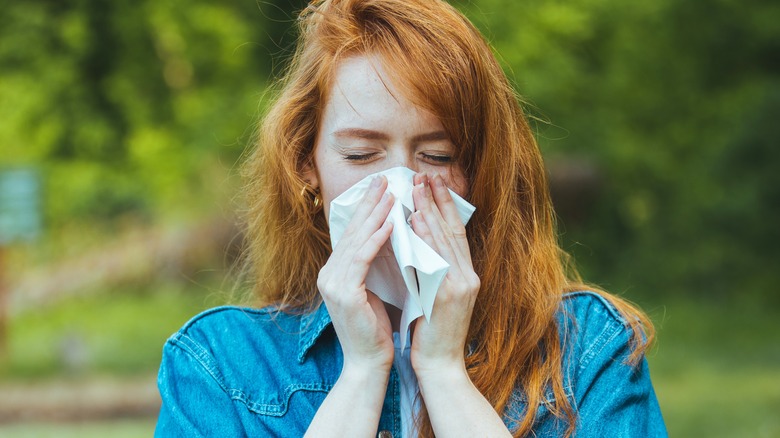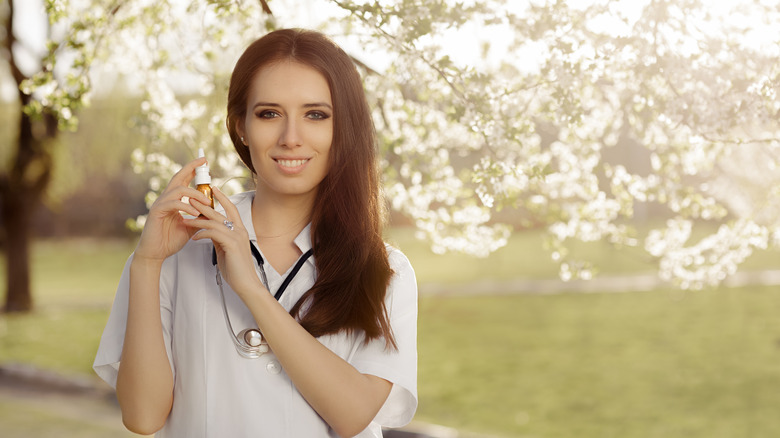Why Your Seasonal Allergies Feel Worse Later In The Day
If your outdoor allergy symptoms seem to worsen in the afternoon or early evening, it's probably not just your imagination. But why do your seasonal allergies feel worse later in the day? Researchers have found that allergens in the air can vary from day to day and even hour by hour. According to Healthline, pollen is one of the primary sources of seasonal allergens. Plants, trees, and grasses produce the fine powder, and the wind carries it through the air. WebMD says different plants produce different types of pollen, and you may be allergic to some plant pollens but not others.
If you are allergic to pollen, your immune system identifies it as dangerous and produces an immune response when you breathe it in (per Healthline). The immune response can cause a runny or stuffy nose, sneezing, sniffling, red or watery eyes, and itching in the nose, throat, and eyes. Pollens from different plants peak at different hours during the day, so depending on what you are allergic to, your allergies may be more irritated in the morning, afternoon, or evening (per WebMD). As Dr. Stanley Fineman, allergist and lead author of a new allergy study at the American College of Allergy, Asthma, and Immunology (ACAAI), explained, "People who have pollen allergies can generally benefit from knowing at what times of day pollen counts are highest."
Pollen counts peak on warm and windy days
The new study, which is to be presented at this year's ACAAI Annual Scientific Meeting found that pollen levels in the air were highest in the afternoon and early evening (via ACAAI). Dr. Fineman says, "We monitored hourly pollen levels in three areas of Atlanta for a week using an automated real-time pollen imaging sensor. We found that lower pollen levels occurred between 4:00 a.m. and Noon. Higher levels of pollen occurred between 2:00 – 9:00 p.m." WebMD says ragweed pollen, a common seasonal allergen, generally peaks in early midday. Grass pollens are highest in the late afternoon and early evening.
American Family Care (AFC) notes that warmer temperatures and elevated CO2 levels can cause plants to increase their pollen output and become "super pollinators." You can minimize seasonal allergy symptoms by scheduling outdoor activities when pollen counts are lowest (via WebMD). You can also stay inside on windy days when pollen counts may be higher. Taking allergy medication a few weeks before the weather warms up and pollens and molds in the air kick off a new allergy season can be helpful as well. Dr. Fineman advises, "If you are someone who enjoys outdoor activities, you need to be aware of when pollen counts are lowest, and what times are best for you to be outside. Weather apps and websites are a good way to monitor pollen levels in your area."


